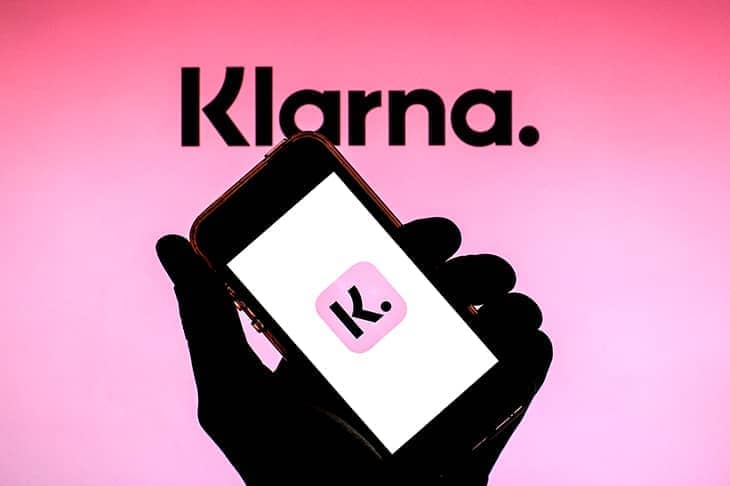Are you logged on to Klarna, Clearpay, Laybuy or Zilch for your Black Friday shopping binge — or are you an old-timer like me who still uses traditional credit cards and even sometimes tries to pay for purchases in cash? If those four brand names meant nothing to you, you are yet to join the millions of UK shoppers who have discovered ‘buy now pay later’ (BNPL) apps that offer, with a couple of simple checkout clicks, payment for fashion and beauty purchases, and even groceries, in a series of interest-free instalments.
‘Shopping just levelled up’ is Klarna’s witty slogan for its three-instalment offer; at Laybuy, it’s six; at Zilch, 25 per cent up-front and the rest later. Own whatever you love and deserve — from Boohoo, Asos, Pretty Little Thing or Lush, to name a few — but don’t pay for it yet. And so what, you might be thinking: aren’t credit cards just the same but more expensive, a fountain of instant credit that tempts us to spend more than we can afford, then hits us with stinging interest rates if the balance isn’t promptly paid off? We’ve all been using those for half a century. And don’t retailers need a boost right now — so user-friendly, cashflow-easing gimmicks such as BNPL can only be good for the economy?
Well, maybe — as I often say in my fuddy–duddy way when assessing innovations that more open-minded consumers seem to like. BNPL is a fad that’s rapidly becoming a boom as every beast in the money jungle jostles for a slice of the action. The small print talks of ‘late fees’ and debt collection agencies but still a Citizens Advice survey found almost one in ten shoppers planning to use BNPL this Christmas. The Financial Conduct Authority has said it may impose rules, but not until next year. And it all sounds akin to the payday lending boom of the previous decade — remember Wonga? — which brought stress to millions of late payers through extortionate compound interest rates. So if BNPL tempts you, caveat emptor: my Black Friday message is that money can never be free.
Broken Bulb
When I bought my new home in March, I inherited an account with Bulb — the UK’s seventh-largest energy supplier, which collapsed into taxpayer-funded ‘special administration’ this week. It offered a simple tariff, a slick website and a persuasive back story about two young entrepreneurs, Hayden Wood and Amit Gudka, who had dreamed of ‘democratising renewable energy’ by offering better service and competitive prices. So I didn’t bother to assess the strength of Bulb’s balance sheet or ask whether it would still be in business by Christmas.
But it wasn’t until August that anyone noticed how steeply wholesale natural gas prices were soaring, crippling weaker energy suppliers that were trapped under Ofgem’s price cap for consumers. Bulb is the 23rd to go down so far but (because none of the big six could absorb its 1.7 million customers) the first to be temporarily nationalised under a scheme to maintain service in the event of the failure of a large supplier.
So my bathwater is currently being heated by Business Secretary Kwasi Kwarteng and my gas bill is heavily subsidised by fellow taxpayers. It’s a situation that can’t last and that the government can’t get out of without letting inflation rip like fury; but for now I can only say thank you.
Following Boris
The great comedian Bob Hope swore he would never again share a platform with the tub-thumping Chrysler boss Lee Iacocca having once been upstaged by him. Likewise, the trauma of facing an audience after Boris Johnson at his hilarious best, at a Spectator bash many years ago, scarred me so deeply that I try to avoid speaking in the same town as our Prime Minister, never mind to the same crowd.
But on Monday, as it happened, he was addressing the CBI conference at South Shields just before I was due to talk to a group at nearby Northumbria university. Sure enough, several people in my hall arrived hotfoot from the larger gathering, where local big shots had been hoping for clarity and reassurance from their top-billed guest on business tax rises and regional infrastructure investment.
How was he, I asked nervously. Shambolic, they said; incoherent to the point of insult, not even funny. But I must be the only person in the country (except perhaps Sir Keir Starmer) for whom that review came as a relief. ‘The boardroom crowd doesn’t trust Boris and he doesn’t care,’ I wrote when he bombed at the CBI two years ago, though not as bizarrely as he did this time. The PM’s minders, if they have any control, should never let him near business audiences, for whom, beneath the now exhausted bon-homie, he has nothing but casual contempt.
Book stacks
This item is — I swear — intended as an observation of the state of the book trade, not another desperate self-plug. But there’s irony in the fact that my new book about how capitalism should up its game has had extreme difficulty reaching bookshops because of supply-chain logjams afflicting the whole sector. According to the Bookseller, shortages of paper and van drivers affecting domestic printing firms (mine was in Croydon) have been exacerbated by soaring shipping costs for colour-printed books from overseas, long delays for reprints of faster-selling titles (not mine), stockpiling by those lucky enough to find any stock — and the baleful impact of Amazon ‘scooping up huge numbers of titles’.
Like empty shipping containers, books are stacked in the wrong places, threatening Christmas disappointment. But don’t give up on local independent bookshops struggling at the end of the chain: the more orders you place with them, the sooner (if capitalism does what it’s supposed to do) normal service will resume. And in the bookseller’s interest as well as your own, please don’t ask to buy now and pay later.







Comments